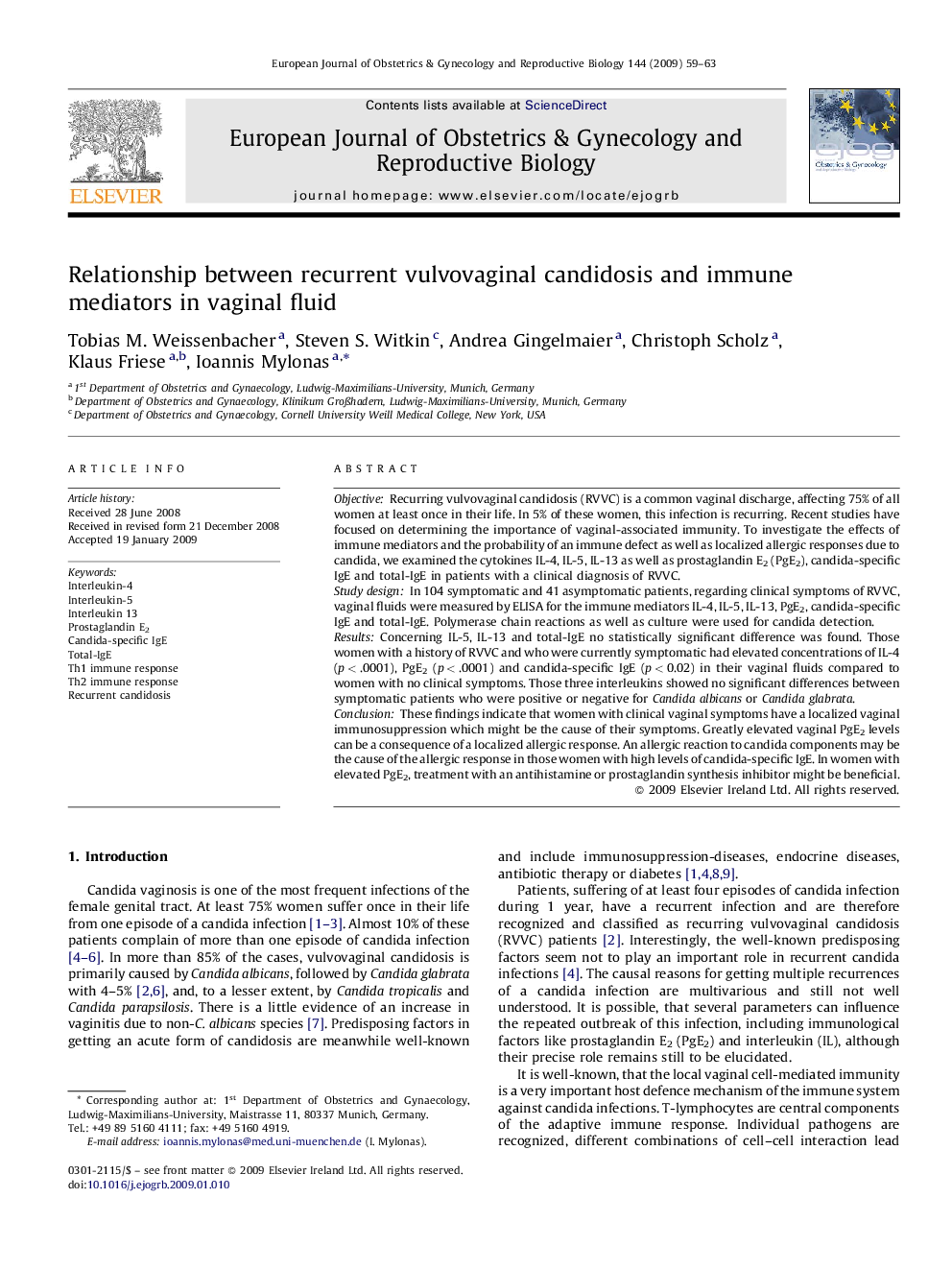| کد مقاله | کد نشریه | سال انتشار | مقاله انگلیسی | نسخه تمام متن |
|---|---|---|---|---|
| 3921784 | 1599865 | 2009 | 5 صفحه PDF | دانلود رایگان |

ObjectiveRecurring vulvovaginal candidosis (RVVC) is a common vaginal discharge, affecting 75% of all women at least once in their life. In 5% of these women, this infection is recurring. Recent studies have focused on determining the importance of vaginal-associated immunity. To investigate the effects of immune mediators and the probability of an immune defect as well as localized allergic responses due to candida, we examined the cytokines IL-4, IL-5, IL-13 as well as prostaglandin E2 (PgE2), candida-specific IgE and total-IgE in patients with a clinical diagnosis of RVVC.Study designIn 104 symptomatic and 41 asymptomatic patients, regarding clinical symptoms of RVVC, vaginal fluids were measured by ELISA for the immune mediators IL-4, IL-5, IL-13, PgE2, candida-specific IgE and total-IgE. Polymerase chain reactions as well as culture were used for candida detection.ResultsConcerning IL-5, IL-13 and total-IgE no statistically significant difference was found. Those women with a history of RVVC and who were currently symptomatic had elevated concentrations of IL-4 (p < .0001), PgE2 (p < .0001) and candida-specific IgE (p < 0.02) in their vaginal fluids compared to women with no clinical symptoms. Those three interleukins showed no significant differences between symptomatic patients who were positive or negative for Candida albicans or Candida glabrata.ConclusionThese findings indicate that women with clinical vaginal symptoms have a localized vaginal immunosuppression which might be the cause of their symptoms. Greatly elevated vaginal PgE2 levels can be a consequence of a localized allergic response. An allergic reaction to candida components may be the cause of the allergic response in those women with high levels of candida-specific IgE. In women with elevated PgE2, treatment with an antihistamine or prostaglandin synthesis inhibitor might be beneficial.
Journal: European Journal of Obstetrics & Gynecology and Reproductive Biology - Volume 144, Issue 1, May 2009, Pages 59–63